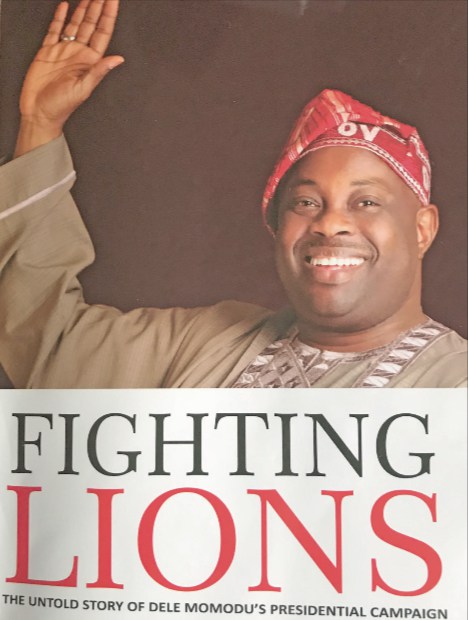Ohimai Godwin Amaize who still holds the record of the youngest presidential campaign manager in Nigeria at the age of 26, recounts in this book, how
Ohimai Godwin Amaize who still holds the record of the youngest presidential campaign manager in Nigeria at the age of 26, recounts in this book, how the media derided the ambition of the publisher of both Ovation International magazine and The Boss Newspaper as well as the founder of Ovation TV, Dele Momodu. The book which was released to the public earlier in the year, July to be precise, for the first time, highlights one of the major reasons the media entrepreneur couldn’t make a mark with his presidential ambition. It alleges that Dele Momodu’s media constituency dealt the heaviest blow on his presidential ambition in 2011.
According to Ohimai Godwin Amaize, “Perhaps one of the biggest blows to the campaign came from Momodu’s own constituency – the Nigerian media. Here was a man who began his career in journalism nearly three decades ago at the African Concord, who in 1990 became the highest paid editor in Nigeria at the age of 30. A man who, as far back as 1991, was Founding Editor of Leaders & Company, which would later morph into Thisday Newspapers. Without question, Dele Momodu had paid his dues not only as a media practitioner but to the Nigerian society as a whole.
“We had started off with the conviction that the media would support one of their own. We could not be more wrong. The politics of the newsroom had some surprises in store for us, for the media practically wrote off one of their own. To them he stood no chance, and they gave him none. Many of his colleagues were dismissive of his aspiration and were not ready to listen to him. Those that bothered to listen, refused to take him seriously as a contender.
“Indeed, the media constituted the biggest bloc of anti-Momodu cynics, and their unwillingness to give his message of a new Nigeria a chance, played a big role in the outcome of the 2011 presidential election. In our post-campaign analysis, we concluded that after the issue of campaign financing, the next major setback our campaign suffered came through the cynicism of the Nigerian media. I learnt from my days as a campus journalist about the agenda-setting role of the media. The media had the power and influence to set a change agenda for the country; and in this case, it appeared the agenda was different.”
